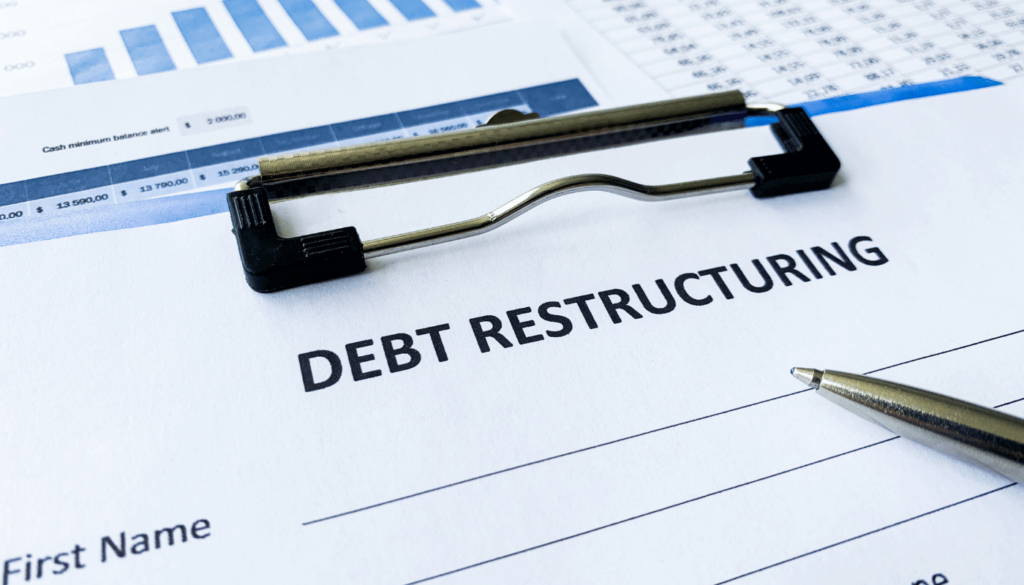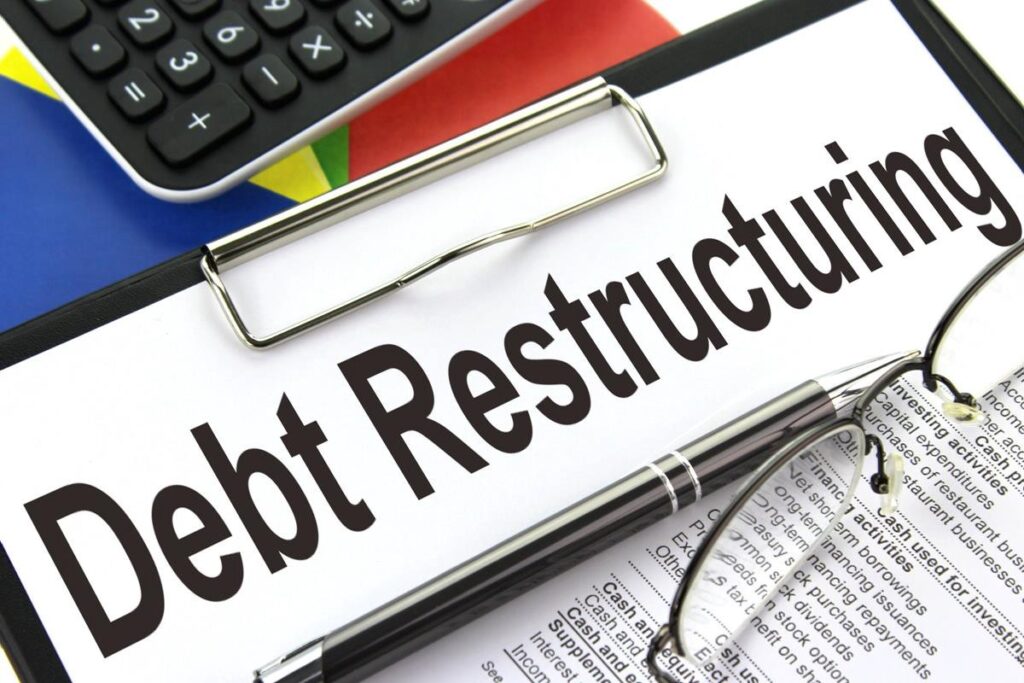Debt restructuring is a complex process that plays a crucial role in helping businesses overcome financial challenges and regain stability. An insolvency lawyer, with their expertise and knowledge, plays a vital role in guiding businesses through this intricate process.
Understanding debt restructuring and the role of insolvency lawyers Canberra is essential for any organization facing financial difficulties.
Understanding Debt Restructuring
Debt restructuring refers to the process of renegotiating and reorganizing a company’s debt obligations in order to improve its financial position. It involves modifying the terms and conditions of existing debts to make them more manageable for the business.
Debt restructuring is a complex and multifaceted process that requires careful analysis and strategic planning. It is often undertaken by businesses that are facing financial distress or are struggling to meet their debt obligations. By restructuring their debt, these businesses aim to alleviate financial pressure, improve cash flow, and ultimately regain financial stability. Visit https://lincolnlawreview.org/liquidation-vs-administration-choosing-the-right-insolvency-procedure for choosing the right insolvency procedure.
The Basics of Debt Restructuring
The process of debt restructuring typically starts with a thorough assessment of the financial situation of the business. This assessment helps identify the sources and causes of financial distress. It involves a detailed analysis of the business’s income, expenses, assets, liabilities, and cash flow.
Once the reasons behind the financial challenges are determined, a strategic plan is created to restructure the debt. This plan takes into account various factors such as the business’s ability to generate future cash flows, the value of its assets, the existing debt structure, and the interests of various stakeholders.

An insolvency lawyer plays a crucial role in this initial stage. They analyze the legal aspects of the business’s financial situation and provide advice on the best course of action. They gather all relevant financial documentation, review contracts, and understand the legal rights and obligations of both the business and its creditors.
After the assessment and strategic planning stage, the actual debt restructuring process begins. This involves negotiating with creditors to modify the terms of the existing debts. The goal is to reach an agreement that is mutually beneficial for both the business and its creditors.
Debt restructuring can take various forms, depending on the specific circumstances of the business. It may involve extending the repayment period, reducing interest rates, converting debt into equity, or even forgiving a portion of the debt.
Key Factors in Debt Restructuring
Different factors come into play when considering debt restructuring. An insolvency lawyer helps businesses navigate these factors and make informed decisions.
One key factor is the business’s ability to generate future cash flows. This is crucial because it determines the business’s capacity to meet its debt obligations in the long term. A thorough analysis of the business’s revenue streams, market conditions, and growth potential is necessary to assess its cash flow prospects.
The value of the business’s assets is another important factor. Lenders often consider the value of the assets pledged as collateral when assessing the feasibility of debt restructuring. If the value of the assets is significantly higher than the outstanding debt, it may provide a stronger bargaining position for the business during negotiations.
The existing debt structure also plays a role in debt restructuring. The terms and conditions of the existing debts, such as interest rates, maturity dates, and payment schedules, can have a significant impact on the business’s financial health. Modifying these terms can help alleviate financial strain and improve the business’s ability to meet its debt obligations.
Additionally, the interests of various stakeholders must be taken into account during debt restructuring. This includes not only the business and its creditors but also other parties such as employees, suppliers, and shareholders. Balancing these interests and ensuring a fair and equitable outcome for all parties involved is a complex task that requires careful consideration.
In conclusion, debt restructuring is a critical process for businesses facing financial distress. It involves a thorough assessment of the financial situation, strategic planning, and negotiations with creditors. By restructuring their debt, businesses aim to improve their financial position, regain stability, and pave the way for future growth and success.
The Insolvency Lawyer: A Key Player in Debt Restructuring
An insolvency lawyer is a crucial player in the debt restructuring process. They have a deep understanding of insolvency laws and regulations, and their expertise helps businesses navigate the complex legal landscape surrounding debt restructuring.
But what exactly does an insolvency lawyer do? Let’s dive deeper into their responsibilities and the skills required for this challenging role.
Responsibilities of an Insolvency Lawyer
Insolvency lawyers assume various responsibilities throughout the debt restructuring process. Their first and foremost duty is to provide legal advice to businesses facing financial distress. They carefully analyze the company’s financial situation, assess the viability of debt restructuring, and advise on the best course of action.
Once a decision is made to proceed with debt restructuring, insolvency lawyers become the primary negotiators with creditors. They work tirelessly to reach agreements that are favorable to the business while ensuring compliance with legal requirements. This involves extensive communication and negotiation skills to find common ground and strike a balance between the interests of the business and its creditors.
In addition to negotiation, insolvency lawyers play a crucial role in drafting and reviewing restructuring agreements. They meticulously scrutinize every detail to ensure the terms are fair and legally binding. This requires a keen eye for detail and a comprehensive understanding of insolvency laws.
Furthermore, insolvency lawyers are responsible for overseeing the implementation of the restructuring plan. They work closely with the business’s management team to ensure compliance with legal requirements and monitor the progress of the restructuring process. This involves regular communication, reporting, and making necessary adjustments to the plan as circumstances change.

The Skills Required for an Insolvency Lawyer
Being an effective insolvency lawyer requires a unique set of skills. First and foremost, they must have a strong understanding of finance and accounting. This knowledge allows them to analyze complex financial statements, assess the financial health of a business, and make informed decisions regarding debt restructuring.
Excellent negotiation and communication skills are also essential for insolvency lawyers. They must be able to effectively communicate with creditors, persuasively present the business’s case, and negotiate favorable terms. These skills are crucial in reaching agreements that protect the interests of both the business and its creditors.
Attention to detail is another crucial trait of a successful insolvency lawyer. They must meticulously review legal documents, contracts, and financial statements to identify potential issues and ensure compliance with insolvency laws. Missing even a small detail can have significant consequences, so a keen eye for detail is of utmost importance.
Lastly, an insolvency lawyer must possess the ability to anticipate potential legal issues and develop strategies to mitigate them. They must stay up-to-date with changes in insolvency laws and regulations, as well as industry trends, to provide the best possible advice to their clients.
In conclusion, an insolvency lawyer plays a vital role in the debt restructuring process. Their responsibilities range from providing legal advice and negotiating with creditors to drafting agreements and overseeing the implementation of the restructuring plan. To excel in this role, insolvency lawyers must possess a strong understanding of finance and accounting, excellent negotiation and communication skills, attention to detail, and the ability to anticipate potential legal issues. With their expertise, they help businesses navigate the complex legal landscape of debt restructuring and ensure the best possible outcome for their clients.
The Process of Debt Restructuring
The debt restructuring process involves several stages, each requiring careful planning and execution.
Initial Assessment and Planning
During the initial assessment, an insolvency lawyer examines the business’s financial position to determine if debt restructuring is a viable option. They assess the business’s debts, assets, and financial capabilities to create a comprehensive restructuring plan.
The restructuring plan is customized to the specific needs of the business and outlines the proposed changes to the debt structure. With the guidance of an insolvency lawyer, the restructuring plan aims to reduce the financial burden and create a sustainable path forward.
Negotiation with Creditors
Once the restructuring plan is in place, an insolvency lawyer engages in negotiations with creditors on behalf of the business. These negotiations aim to reach agreements that are acceptable to both the business and its creditors.
Effective negotiation skills are crucial at this stage. Insolvency lawyers advocate for their clients’ interests and work towards achieving the most favorable terms possible. They ensure that creditors are willing to cooperate and support the restructuring plan.
Implementation of the Restructuring Plan
After successful negotiations, the restructuring plan is implemented. An insolvency lawyer oversees the implementation process to ensure compliance with legal requirements. They monitor the progress, address any legal issues that arise, and make necessary adjustments to the plan if needed.

The Impact of Debt Restructuring on Businesses
Debt restructuring has significant implications for businesses, both financially and operationally.
Financial Implications
Effective debt restructuring can alleviate financial pressures and create a more sustainable financial position for the business. It can result in reduced interest payments, extended repayment periods, or even partial debt forgiveness. These changes provide businesses with the opportunity to regain their financial footing and focus on long-term growth.
Operational Changes
During the debt restructuring process, businesses may need to make operational changes to improve efficiency and increase profitability. This could involve downsizing, streamlining operations, or pursuing new business opportunities. An insolvency lawyer provides guidance on these changes to ensure they align with the overall restructuring strategy.
The Future of Debt Restructuring
As the business landscape evolves, so does the practice of debt restructuring. Several emerging trends are shaping the future of this field.
Emerging Trends in Debt Restructuring
One notable trend in debt restructuring is the increased focus on sustainability and environmental, social, and governance (ESG) considerations. Businesses are becoming more conscious of their impact on the environment and society, and debt restructuring processes are being tailored to align with sustainable practices.
Another trend is the use of technology in debt restructuring. Technological advancements have made it possible to analyze large amounts of data efficiently and identify patterns or risks. This allows insolvency lawyers to make more informed decisions and streamline the debt restructuring process.
The Role of Technology in Debt Restructuring
Technology plays a crucial role in modern debt restructuring practices. Insolvency lawyers can leverage innovative tools to improve efficiency and accuracy. Automated data analysis, electronic document management systems, and secure data-sharing platforms all contribute to streamlined and effective debt restructuring processes.
In conclusion, an insolvency lawyer plays a critical role in debt restructuring, offering their expertise, legal guidance, and negotiation skills to help businesses navigate financial challenges. With their assistance, businesses can create sustainable restructuring plans that alleviate financial burdens and provide a solid foundation for future growth. As the future of debt restructuring continues to evolve, emerging trends and technological advancements will undoubtedly shape the way businesses approach this process.
